
Canned Heat is an American rock band that was formed in Los Angeles in 1965. The group has been noted for its interpretations of blues material and for its efforts to promote interest in this type of music and its original artists. It was launched by two blues enthusiasts Alan Wilson and Bob Hite, who took the name from Tommy Johnson's 1928 "Canned Heat Blues", a song about an alcoholic who had desperately turned to drinking Sterno, generically called "canned heat", from the original 1914 product name Sterno Canned Heat, After appearances at the Monterey and Woodstock festivals at the end of the 1960s, the band acquired worldwide fame with a lineup consisting of Hite (vocals), Wilson, Henry Vestine and later Harvey Mandel, Larry Taylor (bass), and Adolfo de la Parra (drums).
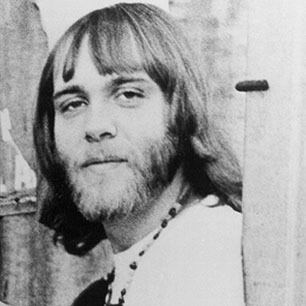
Henry Charles Vestine a.k.a. "The Sunflower", was an American guitar player primarily known as a member of the band Canned Heat. He was with the group from its start in 1966 to July 1969. In later years he played in local bands but occasionally returned to Canned Heat for a few tours and recordings.

Alan Christie Wilson was an American musician, best known as the co-founder, leader, co-lead singer, and primary composer of the blues band Canned Heat. He sang and played harmonica and guitar with the group live and on recordings. Wilson was the lead singer for the group's two biggest U.S. hit singles: "On the Road Again" and "Going Up the Country".

"On the Road Again" is a song recorded by the American blues-rock group Canned Heat in 1967. A driving blues-rock boogie, it was adapted from earlier blues songs and includes mid-1960s psychedelic rock elements. Unlike most of Canned Heat's songs from the period which were sung by Bob Hite, second guitarist and harmonica player Alan Wilson provides the distinctive falsetto vocal. "On the Road Again" first appeared on their second album, Boogie with Canned Heat, in January 1968; when an edited version was released as a single in April 1968, "On the Road Again" became Canned Heat's first record chart hit and one of their best-known songs.

Canned Heat is the 1967 debut album by Canned Heat. It was released shortly after their appearance at the Monterey Pop Festival, and is a blues cover album.

Future Blues is the fifth album by American rock band Canned Heat, released in 1970. It was the last to feature the band's classic lineup, as Larry Taylor and Harvey Mandel had both departed by July 1970, prior to its release to record with John Mayall and songwriter Alan Wilson died shortly after on September 3, 1970. It was also the only classic-era Canned Heat studio album to feature Mandel, as Henry Vestine had been the lead guitarist on the previous albums. Their cover of "Let's Work Together" by Wilbert Harrison became a hit. "London Blues" features Dr. John. It was re-released on CD in 2002 by MAM productions with five bonus tracks.

Living the Blues is the third album by Canned Heat, a double album released in late 1968. It was one of the first double albums to place well on album charts. It features Canned Heat's signature song, "Going Up the Country", which would later be used in the Woodstock film. John Mayall appears on piano on "Walking by Myself" and "Bear Wires". Dr. John appears on "Boogie Music". The 20-minute trippy suite "Parthenogenesis" is dwarfed by the album-length "Refried Boogie", recorded live.
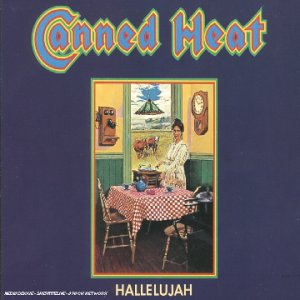
Hallelujah is the fourth album by Canned Heat, released in 1969. It was re-released on CD in 2001 by MAM productions with four bonus tracks. It was the last album to feature classic lineup mark 1, as Vestine left the band prior to Future Blues.

Uncanned! The Best of Canned Heat is two-disc CD set issued in 1994, features various tracks from previous albums and some previously unreleased tracks. Highlights include an alternate, longer take of "On the Road Again," and the first release of "Let's Work Together" in stereo.

Hooker 'n Heat is a double album released by blues musician John Lee Hooker and blues-rock band Canned Heat in early 1971. It was the last studio album to feature harmonica player, guitarist and songwriter Alan Wilson, who died in September 1970 from a drug overdose. The photo on the album cover was taken after Wilson's death, but his picture can be seen in a frame on the wall behind John Lee Hooker. Guitarist Henry Vestine was also missing from the photo session. The person standing in front of the window, filling in for Henry, is the band's manager, Skip Taylor. Careful examination of the photo reveals that Henry's face was later added by the art department. Although featured on the cover, vocalist Bob Hite does not sing on the album.
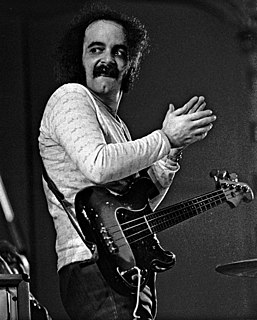
Samuel Lawrence Taylor was an American bass guitarist, best known for his work as a member of Canned Heat from 1967. Before joining Canned Heat he had been a session bassist for The Monkees and Jerry Lee Lewis. He was the younger brother of Mel Taylor, long-time drummer of The Ventures.
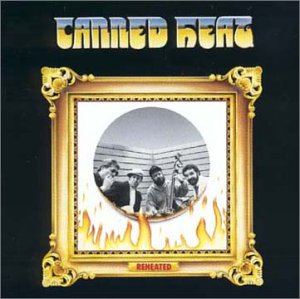
Reheated is the twelfth album by Canned Heat, released in 1988. It features two members of the band's classic lineup, Fito de la Parra and Larry Taylor. Two new members, accomplished musicians, have been added to revamp the band's sound without straying from the original spirit of the band. Among the titles, "Bullfrog Blues" was originally on the B-side of the first single recorded by Canned Heat in 1967; "Built for Comfort" by Willie Dixon was popularized by Howlin' Wolf; "Take Me to the River" is a R&B/soul song which has been recorded by artists such as Al Green and Talking Heads; and Tom Waits's "Gunstreet Girl" is played with a remarkable drive. This album is representative of Canned Heat's efforts to create their own music from various sources.
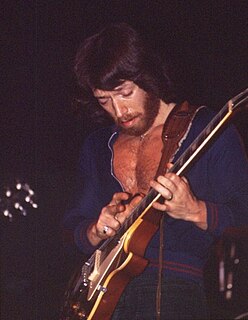
Harvey Mandel is an American guitarist known for his innovative approach to electric guitar playing. A professional at twenty, he played with Charlie Musselwhite, Canned Heat, the Rolling Stones, and John Mayall as well as maintaining a solo career. Mandel is one of the first rock guitarists to use two-handed fretboard tapping.

Canned Heat '70 Concert Recorded Live in Europe is a 1970 live album by Canned Heat. The album is taken from various locations on live concert European tour right before Alan Wilson’s death and is the band's first officially released live album.
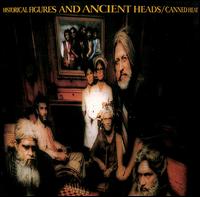
Historical Figures and Ancient Heads is the eighth album by Canned Heat, released in 1971. It was the first album not to feature original member and songwriter Alan Wilson who had died the previous year, and their bassist Larry Taylor, who had left to join John Mayall's band. Featuring new guitarman Joel Scott Hill and Little Richard on “Rockin’ WIth The King”. The record also includes Tony de la Barreda on bass, who left with Hill after this album and subsequent tour.
Bluesberry Jam was a blues rock band active in the 1960s. They were for a time geographically as well as chronologically similar to Pacific Gas & Electric and Canned Heat. Their musical styles were also similar.
Walter de Paduwa is a Belgian radio DJ, musician and rock'n'roll historian best known for his association with Canned Heat.

Dale Spalding is an American singer, harmonicist, guitarist and bassist, best known for his works with Poncho Sanchez and Canned Heat.
Dallas Hodge is an American blues rock singer, guitarist, songwriter and record producer. He has released two solo albums since 2007, with the most recent, Don't Forget About The Music We Made (2019) appearing in the US Billboard Blues Albums Chart. Otherwise, Hodge is best known for his collaborations with Canned Heat and Steve Marriott.
















